Yury: So the transformation took altogether over a year?
Meropi: Over a year, yeah. The top of 2019 was when we were seriously digging into what it would look like. In many aspects of the organization, there was stuff already going on in practice. Cynthia had been like, “I’d never make a major decision about the company without talking to you about it.” And we are such a small staff—seven full-time people—so it was already taking shape, but we wanted to think through what it really meant in terms of each of our roles, in terms of season planning and curation, in terms of fundraising, in terms of all those big-picture buckets of work that are required of the leadership of the organization.
I’m still producing the mainstage shows, but I started getting more involved in fundraising and digging more deeply with Sarah into season planning, commissioning, and curation. It is an ongoing intentional effort to always be calibrating what shared leadership is for us. It’s changed shape a decent amount during the pandemic, largely because the nature of how we’re operating as an organization has changed so much.
Yury: What was the impulse for the collective governance? Was it just the nature of growth?
Meropi: I think it was two things. It was an aspirational ideal that we wanted to be a completely horizontal organization eventually—we wanted to continue chipping away at that hierarchy. And in combination with that, the three of us already worked very closely together, and got on quite well, and were interested in making this thing come to pass.
Yury: In the Wilma’s case, it very much grew out of the HotHouse Acting company ethics: “We’re in it together, we’re succeeding when we’re supporting each other, with no obvious star or leader.” So, at some point the question organically came up: Can we also lead the organization in the same manner?
We are learning about what the organization is and are trying to stay relatively open, like, “That’s what I think. What do you think?” “Oh, bullshit.” “Okay, let’s not do it.” “Next idea.”
Meropi: What has it been like stepping into shared leadership with people you didn’t know that well?
Yury: There is some cleanness in it. We’re all starting from the same position. We’re all in very equal circumstances. We’re only a year into the experiment, actually less, so it’s early to know any big outcomes, but so far it just feels normal, actually easier.
I couldn’t imagine myself carrying the whole load on my shoulders, specifically in a different country, in a different culture. Plus, Blanka has been there for thirty-plus years. To suddenly replace a person with this much experience is hard. We are learning about what the organization is and are trying to stay relatively open, like, “That’s what I think. What do you think?” “Oh, bullshit.” “Okay, let’s not do it.” “Next idea.” So far it feels very natural to me.
Meropi: Do you feel like it resembles an artistic collaboration that you would have as the director on a production? How do those things relate to each other, the way the four of you are working together to lead the company, versus the way a creative team may work together on a production?
Yury: It does feel different to me. Artistic leadership in an organization is a different job than directing a play. And honestly, for me, co-directing a production is harder. As a director, I have done a number of shows in collaboration with other people and it has never really been easy. How does that compare to your experiences?
Meropi: I’m not a theatre director in the traditional sense. My artistic life outside of Soho Rep has involved a lot of collective creation and devising. So in that respect, there are some similarities to the way we work together in the theatre company I co-founded, Radical Evolution. In my role there, I am a lot more involved with the actual content creation and authorship of the shows, in addition to being a dramaturg and artistic producer.
The ongoing conversation at Soho Rep, of always trying to challenge each other’s assumptions or iterate on the ideas that are coming up, feels a little bit similar in that regard. Obviously the outcomes are extremely different, but I see the connection in the style of thinking.
What is the artistic planning process like for you all? I know there are certain seasons that each of you are leading, but are there conversations still amongst the group about what those seasons look like? How does that play out?
Yury: The idea is that we are rotating: one of us serves as the lead artistic director for one year, while other three are working part-time. The lead has final word on decisions for their season, but it is really only the final word. Last year we went through dozens of plays. And I remember that at least one of the plays that made it into this season I really didn’t like first, but the other co–artistic directors told me, “You’re an idiot. It’s a great play. Read it attentively.” I was like, “Oh, really? Yeah, got it.” So that was that.
As the lead artistic director for the 2020–21 season, I asked each of the cohort members to choose and direct one production, to introduce our group to the city in all its aesthetic diversity.
Meropi: Was the season set before the shutdown?
Yury: Yes. And we had to make some changes. We postponed Fairview, a play that really demands physical proximity so it was moved to next season. Yet we committed to producing three other shows. The first opened in December as a site-specific production, which we captured and streamed online, and we are going into rehearsals of the second in mid-February. It will be a one-camera/one-take film.
Meropi: How has it all been?
Yury: It’s been a rollercoaster! When the pandemic started we still had the fourth show of the 2019–20 season coming, Is God Is, and we made it into a radio play. James Ijames directed it and it opened this summer. The first production of the current season was Will Arbery’s Heroes of the Fourth Turning, Blanka directed it. She decided to do a site-specific production and to capture it on video. We consciously did not call it a film or a theatre piece, it is really a hybrid project. Actors spent two weeks in quarantine, then they were tested, tested, tested. Then they went to Poconos, where we had rented houses, and stayed there in the quarantine bubble for three weeks shooting the piece.
The testing company kept coming and doing tests every seventy-two hours while they were there. Everything felt scary. We wondered, What if anybody gets sick? But nobody got sick. Will it work artistically on camera? I think it worked better than well.
What was your story during COVID?
Given the lack of meaningful freelance work right now, we said, “What if we put artists on salary?” And then, “What is it we’re doing while these artists are here on salary?”
Meropi: We postponed the productions we had planned for last season and this season and instead shifted our resources into direct support for artists. We have this job-creation program called Soho Rep. Project Number One, which was inspired by Federal Project Number One—part of the new deal coming out of the Great Depression.
There has been so much uncertainty around when can we return. And before the pandemic, so much of what compelled us to choose a show was that it was an experience that necessitates all of us, artists and audiences, in the same room together. It felt difficult to ask these artists to adapt their work to an online format so we decided on taking a different approach. It became clear very early on that there was this real rift between institutions in New York City and individual artists who were working freelance and who had no safety net when the pandemic happened. It was really bad very quickly.
There was such a divide between those of us who had the simple things that everybody should have—stability in terms of income, a place to live, and food to eat—and then those people who were not sure where that was going to come from in the next few weeks. It’s a symbiotic relationship here in New York between artists and institutions. If our institutions prevail but there are no artists left in the city because they couldn’t afford to stay, then what is the point?
We immediately started thinking, What can we do to try to address that rift? So we started thinking about hiring artists. Given the lack of meaningful freelance work right now, we said, “What if we put artists on salary?” And then, “What is it we’re doing while these artists are here on salary?” We began to develop these ideas in relationship with our artist board members—Jackie Sibblies Drury, Branden Jacobs-Jenkins, Mimi Lien, and Claudia Rankine. We took the idea to the four of them and were like, “What do you think?” And we began developing it together.
In September, we brought eight artists onto the theatre’s staff, and we’re trying to take the next nine months that would’ve been our season to reimagine anything and everything about how we are operating. How we can become a more just, more equitable theatre coming back from this? What is theatre? What is the nature of performance and what does that mean in this changed world of ours? We’re really trying to grapple with some of the bigger questions we have in this moment and use this time to strengthen our organization in ways we feel are important, around racial justice, around pay equity, around these internalized things that inform how the work is made and who gets to make the work.
We’re a couple of months into this giant experiment. We’ve been asked many times, “What’s going to happen at the end?” And we’re like, “We don’t know, that’s part of the point.” It’s a giant experiment. What will Soho Rep look like after this year? It’s exciting, and I think this shared leadership model was in a way an inspiration to try to expand that leadership even further into our artistic community.
Yury: I’m so happy you’re talking about this. We’re trying to do a similar thing, to start paying salaries to our acting company, while on a smaller scale. As somebody coming from the Russian tradition, and from the Eastern European tradition, the first thing that shocked me here was, “Wait? What? Actors are not on salaries? Then who is on salaries if not actors? Oh, it’s everybody else, but artists. Well that’s weird.”
Meropi: We were so deep into thinking “this is the way it works” that we failed to see that. Now it’s time to ask some questions about whether that’s the best way. I don’t pretend to have all the answers—I don’t pretend to have any answers—but let’s ask the questions and see where that gets us.
Yury: I did some calculations. I put together all the fees we are now paying artists annually for their work on the shows. Then, I subtracted this number from the number we need to put twenty artists on decent annual salaries. The difference is certainly negative, it’s 40 percent. A lot but not impossible. There must be a way of covering this gap. Because this could change so many things.
How do we open up and welcome people who have been historically underrepresented? (…) What does that look like beyond shows? How can we become a more community-focused space? How can we become a space for people to just hang out?
Meropi: So many people have asked us, “You’re called Soho Rep, you were once a repertory company, is this a return to the repertory model?” And we’re like, “No, but it’s also not dismissing that model either.” It’s just trying to reconsider what models may be the most advantageous for this particular moment, and trying to consider that in relationship with artists and in conversation with artists.
The other thing is that the people on salary get tasked with solving the problems. but we don’t necessarily have all the best ideas all the time. We may have some good ones, but how do we know how these things are really affecting the lives of the people we’re talking about? That was another reason we felt strongly about doing this work in conversation with artists we already had relationships with, who were part of our community. We wanted to deepen those relationships and dive into the questions.
Yury: I think that’s a great idea.
Meropi: What do you see as the future of the theatre as a whole coming out of this? Where do you think you’re headed?

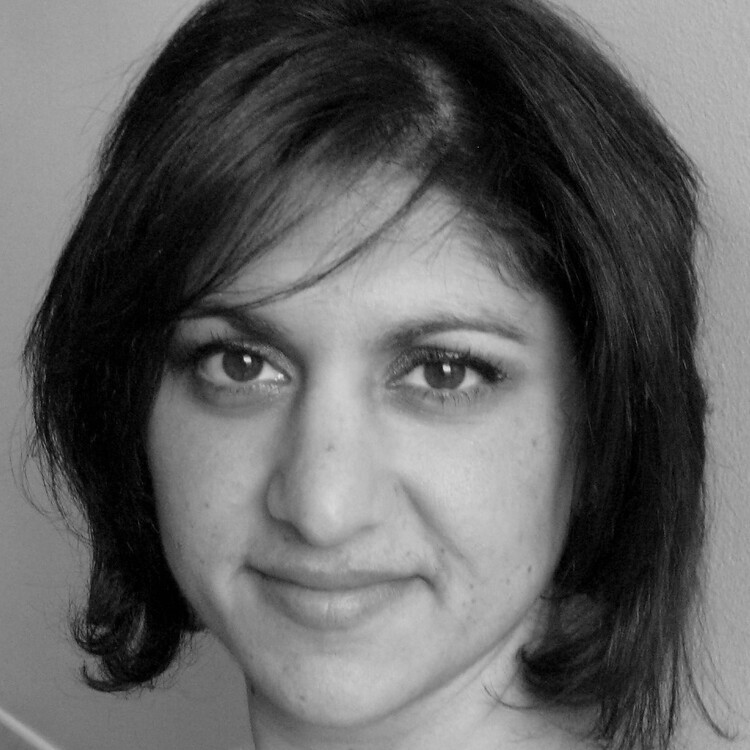

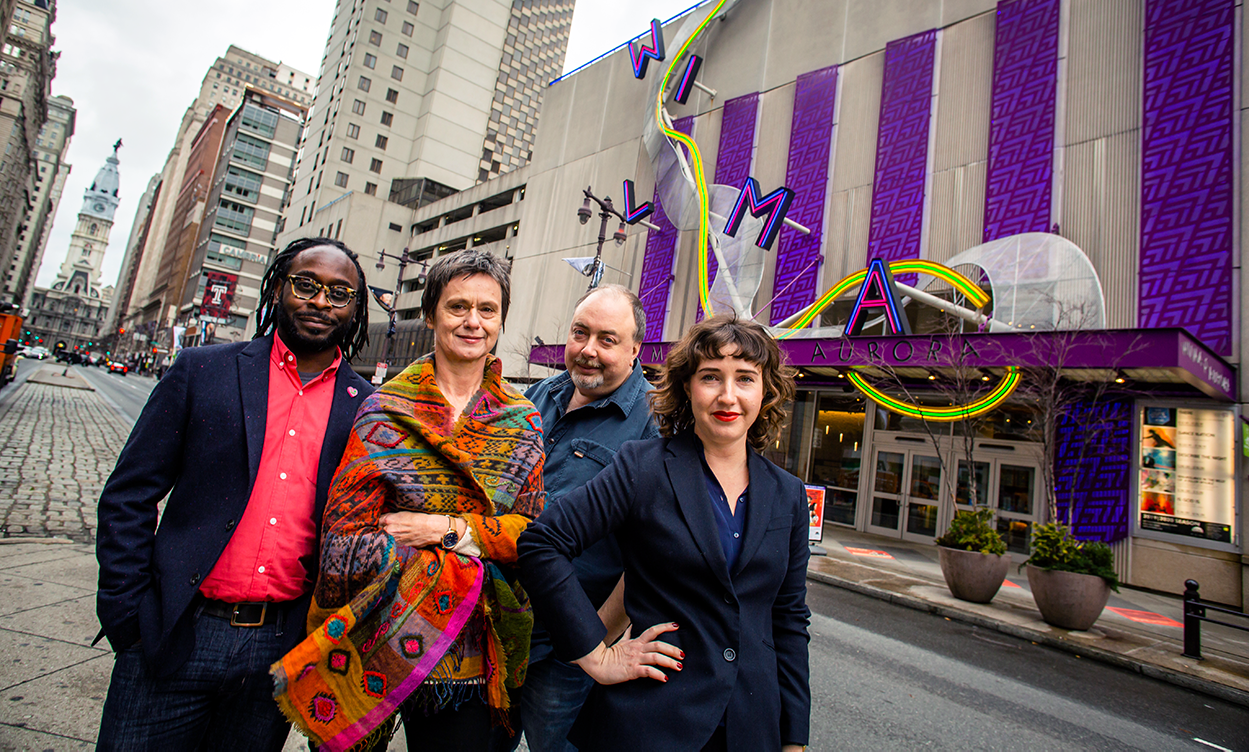
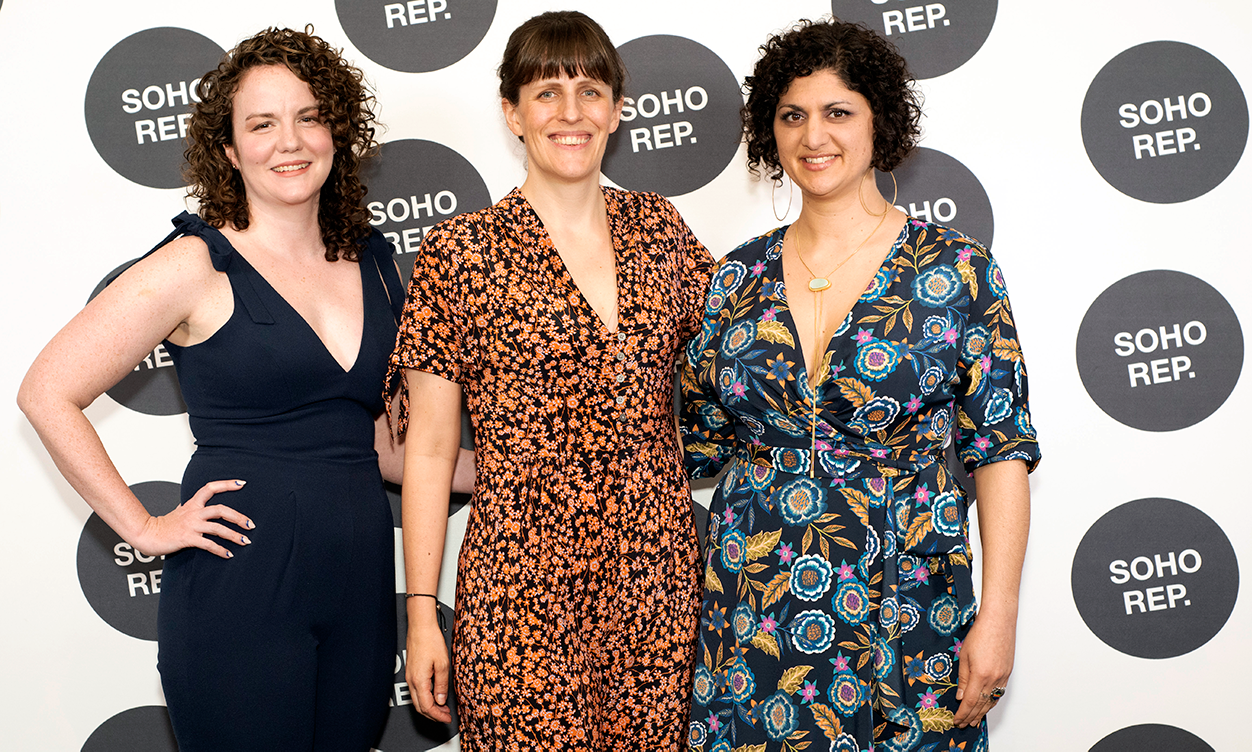
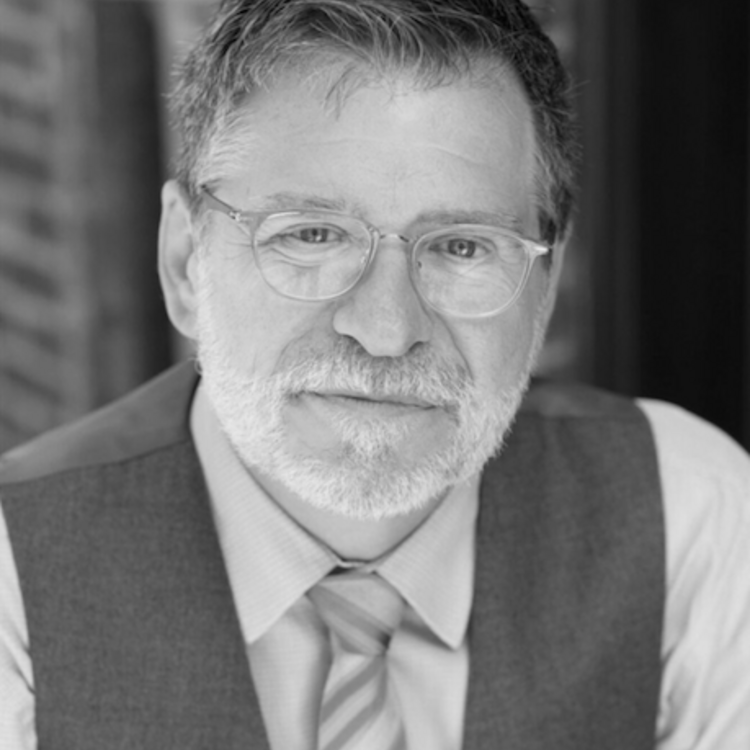
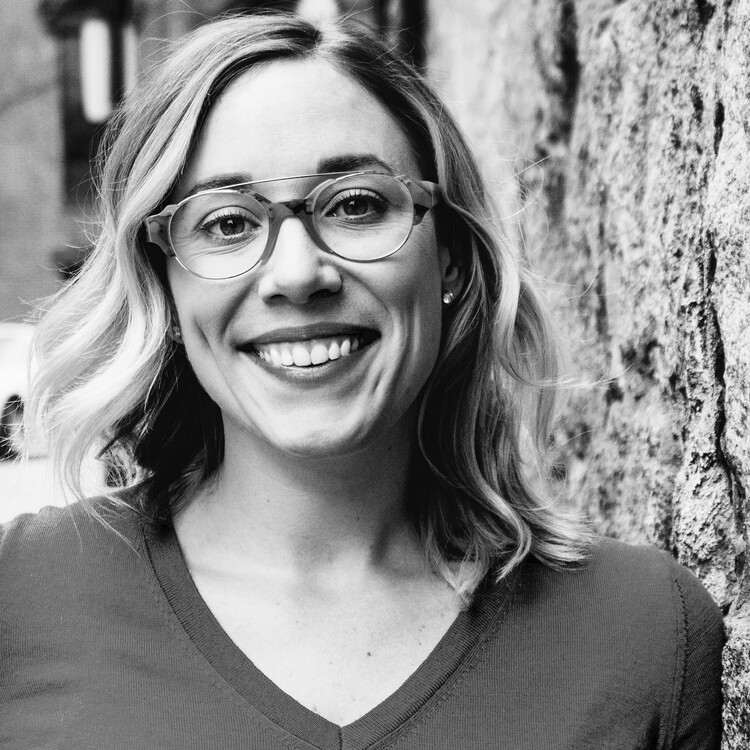
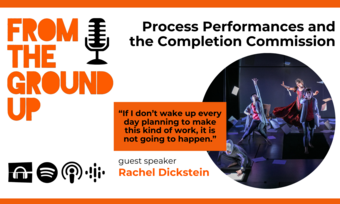


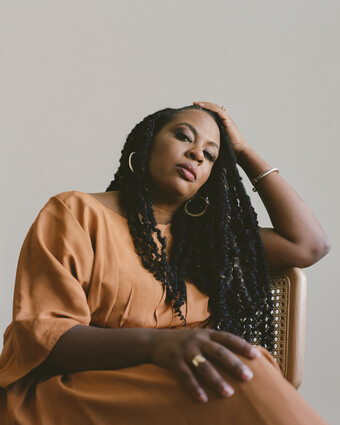



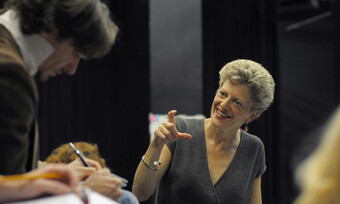


Comments
The article is just the start of the conversation—we want to know what you think about this subject, too! HowlRound is a space for knowledge-sharing, and we welcome spirited, thoughtful, and on-topic dialogue. Find our full comments policy here